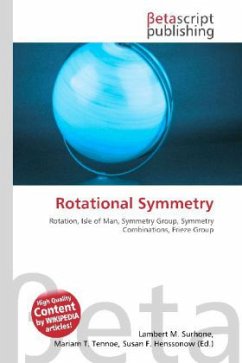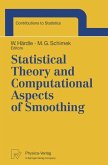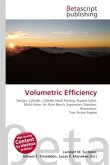High Quality Content by WIKIPEDIA articles! In mathematics, a function defined on an inner product space is said to have rotational invariance if its value does not change when arbitrary rotations are applied to its argument. For example, the function f(x,y) = x2 + y2 is invariant under rotations of the plane around the origin. For a function from a space X to itself, or for an operator that acts on such functions, rotational invariance may also mean that the function or operator commutes with rotations of X. An example is the two-dimensional Laplace operator ? f = ?xx f + ?yy f: if g is the function g(p) = f(r(p)), where r is any rotation, then (? g)(p) = (? f)(r(p)); that is, rotating a function merely rotates its Laplacian.
Bitte wählen Sie Ihr Anliegen aus.
Rechnungen
Retourenschein anfordern
Bestellstatus
Storno








